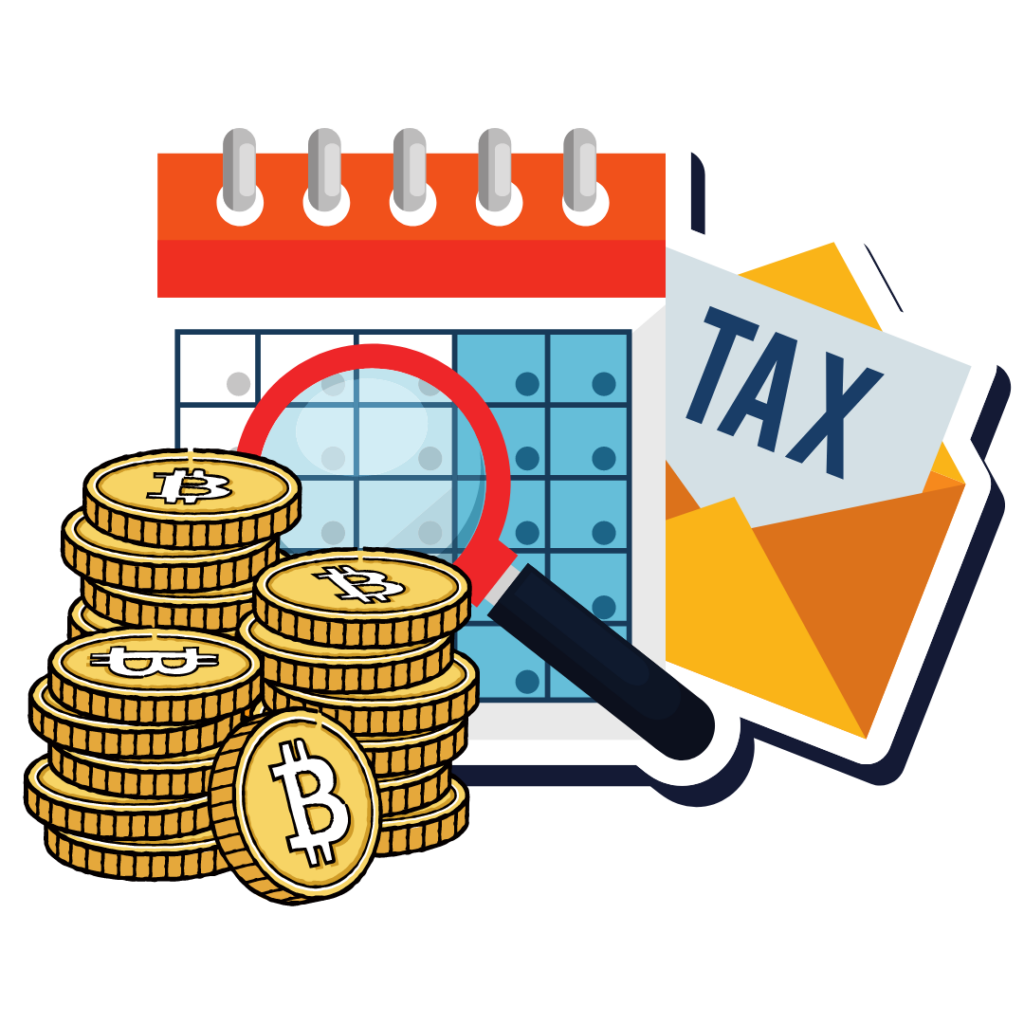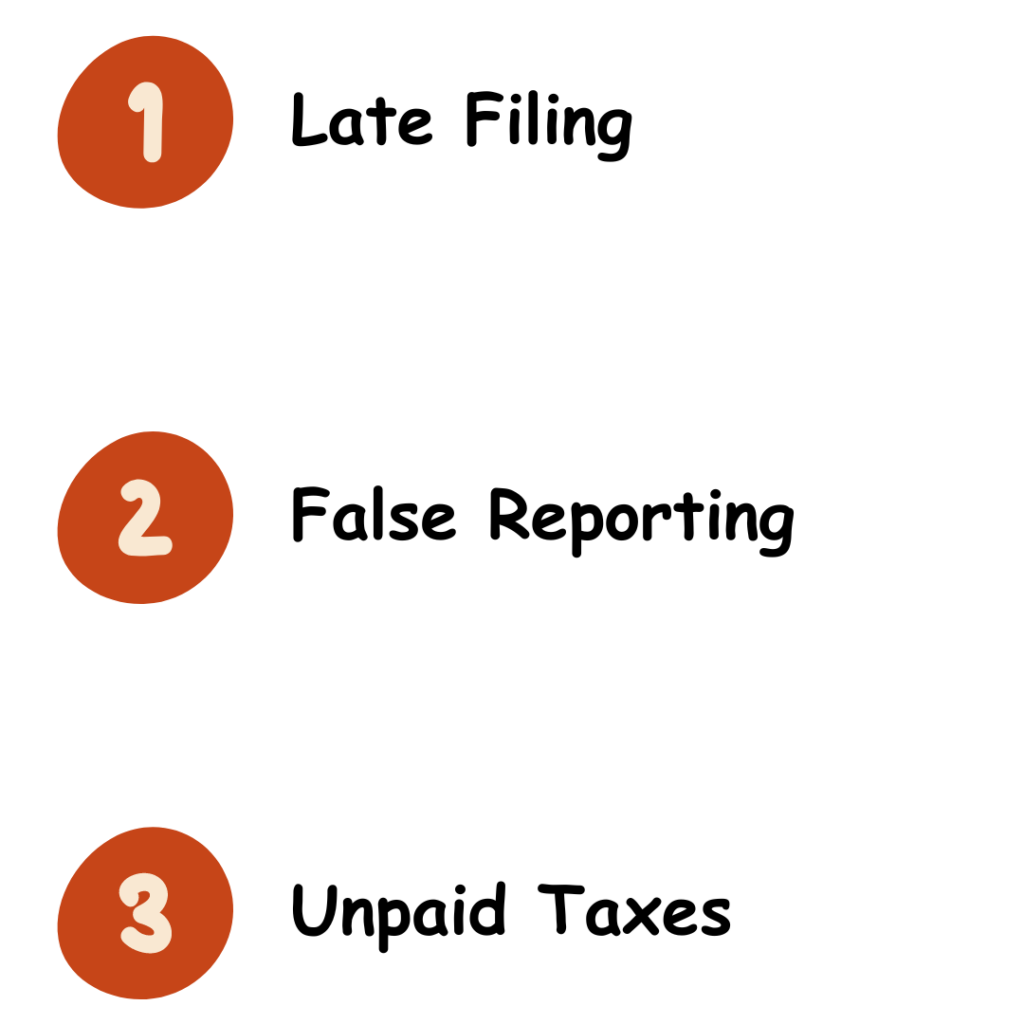Crypto Tax Penalties in Canada: In-Depth Guide
You may face crypto tax penalties in Canada if you file your crypto taxes late, report them wrong, or don’t pay them. This means you could be charged an extra 5% of what you owe, plus 1% more for each month you’re late, and other penalties we’ll discuss today.
Getting a handle on crypto taxes in Canada is more important than ever, with the CRA and other tax bodies around the world keeping a close eye on crypto earnings. If you’re worried about having missed out on paying your crypto taxes or making mistakes, this guide is here to help. It offers a straightforward look at how crypto is taxed in Canada, what potential penalties and fines you may have to pay, and how to legally avoid some, if not all, of them.
How is Crypto Taxed in Canada?

In Canada, the CRA treats cryptocurrencies as commodities, similar to stocks, which means profits from crypto are subject to either business income taxes or capital gains taxes.
Business Income Tax: Any income or profit made in crypto is considered business income if you conduct your crypto activities
- With the intent to profit
- Are regular or repetitive
- Commercial in nature or involve promoting goods or services
This includes activities like trading, mining, or staking crypto. The rate depends on the income tax rates for the year.
Capital Gains Tax: If you’re not trading crypto as a business but still make a profit (like swapping crypto, buying something with crypto, or gifting it), you’ll face capital gains tax. But only half of the gain is taxable. For example, on a $10,000 capital gain, you’ll only be taxed on $5,000.
Check out our in-depth guide to dive deeper into the nuances of Canadian crypto taxes.
The CRA works with most crypto exchanges in Canada to track transactions and ensure taxpayers are reporting and paying the correct taxes on time.
When Do You Owe Crypto Tax Penalties to the CRA?

The following are the most common scenarios where you might owe crypto tax penalties to the CRA:
Filing Your Crypto Tax Return Late: You’ll incur penalties if you don’t file your crypto tax return by the due date. This starts at 5% of the owed balance, plus 1% more for each month the return is late, up to 12 months. If penalized in 2019, 2020, or 2021, the rate increases to 10% of your owed balance, plus 2% for each month, up to 20 months.
Check out CRA’s official guidelines for more information.
False or Unreported Crypto Income: Misreporting or failing to report crypto income over $500 leads to penalties. This can be 10% of the unreported amount or 50% of the understated tax.
Unpaid Taxes: If taxes are due and unpaid by April 30, interest is charged from May 1. This is compounded daily, and the interest rate can change every 3 months.
How to Calculate your Crypto Tax Penalties to the CRA?
The following are some examples of how these penalties and interests are calculated:
Late Filing: Suppose you owe $2,000 in crypto taxes and file two months late. The initial penalty is 5% of $2,000 ($100), plus 1% for each full month late, i.e., 2% ($40). Total penalty: $140.
False Reporting: If you underreport crypto income by $5,000, the penalty could be 10% of $5,000 ($500) or more, depending on the severity of the omission.
On Unpaid Taxes: If you owe $2,000 and pay a month late, interest is compounded daily from May 1. The rate changes quarterly. For example, if the annual rate is 5%, the monthly interest on $2,000 would be approximately $8.33, compounded daily.
How to Legally Avoid Crypto Tax Penalties in Canada?
Voluntary Disclosures Program (VDP)
The CRA’s Voluntary Disclosures Program is a safety net for those who’ve made mistakes on their tax returns. It allows you to come forward and correct your returns before the CRA catches the errors.
By doing this, you can avoid hefty penalties and might even reduce the interest you owe. The key here is to act before the CRA contacts you, ensuring your disclosure is both complete and truthful. You can apply for the Voluntary Disclosures Program (VDP) application using Form RC199.
Cancel or Waive Crypto Penalties and Interest
Sometimes, life throws curveballs that affect your ability to meet tax obligations, like a serious illness or a natural disaster. In such cases, the CRA might cancel or waive penalties and interest. You’ll need to explain your situation thoroughly using Form RC4288 and provide any supporting documents. The CRA considers these requests on an individual basis, so detailed and clear explanations can make a big difference.
Change Your Crypto Tax Return
If you spot a mistake in your filed tax return, don’t panic. The CRA allows you to make changes to your return. You can do it through their online portal or by submitting a T1 Adjustment Request form. The sooner you correct the error, the better, as this minimizes potential penalties and accruing interest.
Use Crypto Tax Software
Keeping track of all your crypto transactions can be tricky. Crypto tax software, like Bitcoin.Tax. can help streamline this process, ensuring your tax calculations are accurate and comply with Canadian laws. These tools are great for keeping detailed records, a crucial part of crypto tax compliance.
Consult a Crypto Tax Professional
When in doubt, consulting a tax professional, especially one who knows the ins and outs of crypto taxation, is always a good idea. They can offer tailored advice, help you understand complex tax rules, and ensure you know your options for avoiding crypto tax penalties to the CRA (legally). Moreover, they can help you reduce your overall tax burden and steer clear of penalties in the future.
Check out our in-depth guide on how to choose a crypto tax professional for your specific situation.
FAQs
How much is the late filing penalty in Canada?
If you file your tax return late in Canada and have a balance owing, the Canada Revenue Agency (CRA) imposes a late filing penalty. This penalty starts at 5% of the amount you owe. Additionally, for each full month that your return is late, an extra 1% is added to the penalty, and this can continue for up to 12 months.
For instance, if you owe $1,000 and file two months late, your penalty would be 5% of $1,000, which is $50, plus 1% of $1,000 for two months, which is $20, leading to a total penalty of $70.
What is the interest rate on taxes owed in Canada?
The interest rate on taxes owed in Canada varies and is set by the Canada Revenue Agency (CRA). This rate can change every three months based on prescribed interest rates. It’s important to note that the interest rate is not a fixed percentage and can vary each quarter. For the most current rates, it’s advisable to check this official page.
What is the tax installment penalty and interest in Canada?
In Canada, if you opt to pay your taxes in installments and you either miss a payment, pay late, or pay less than what you should, the Canada Revenue Agency (CRA) might charge you extra money as a penalty and interest.
Here’s how it works:
- Penalty: If the interest you should have paid on your installment payments is more than $1,000, you’ll be penalized. The CRA calculates how much interest you would have owed on the right installment amount and then compares it to what you actually paid. The penalty is 50% of the difference.
- Interest: On top of the penalty, you also get charged interest on any late or short payments. This interest is added every day based on a rate that can change every three months.
Make sure you pay the correct installment amounts on time to avoid these extra charges. For the most up-to-date information on rates and how these charges are calculated, it’s a good idea to check with the CRA.